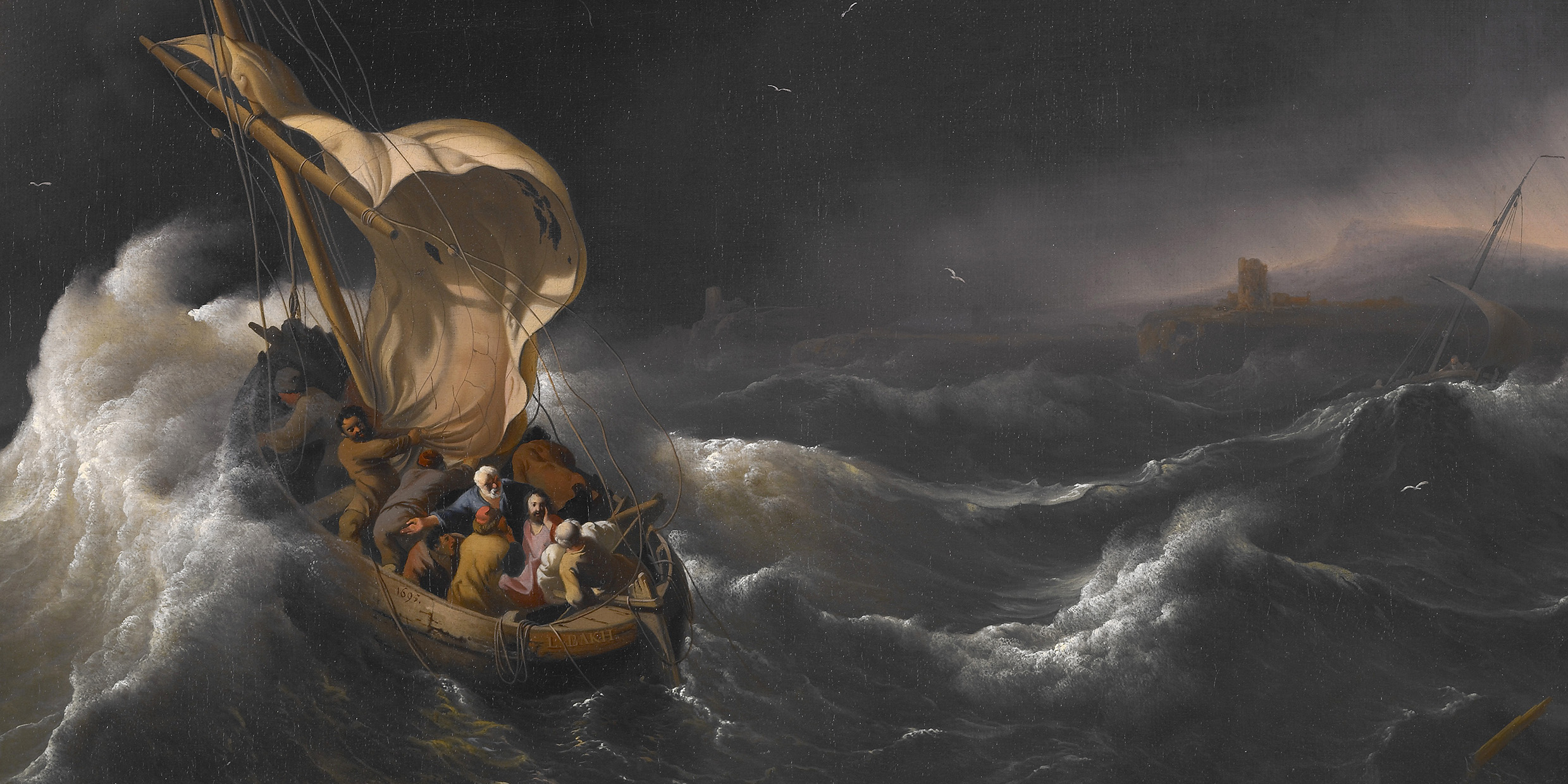Originally published 16 January 2005
The stained glass window above the altar of St. Andrew’s Anglican Church on the island of Exuma shows Christ stilling the waters of the Sea of Galilee. However, the waters in the window do not seem particularly threatening, nor do the apostles seem anxious. Their craft does not appear to be in any danger. On the contrary, there is something pleasantly serene about this depiction of the biblical crisis. After all, this is the Bahamas, and beyond the church windows a turquoise sea basks in sunshine.
It is the first Sunday of January. I take a seat in a back pew. I am an outsider, vaguely uncomfortable although the atmosphere is welcoming. The sexton, a handsome Bahamian in a tailored tropical suit, hands me copies of the hymnal and Book of Common Prayer. The woman in the pew in front of me turns and offers a radiant smile. I nod and grin. The Reverend Father announces the opening hymn number from the porch of the church and the congregation raise their voices in song: The year is gone beyond recall, With all its hopes and fears, With all its bright and gladdening smiles, With all its mournful tears.
It has been 45 years since I counted myself a regular churchgoer. If I edited the Creed down to those parts to which I can give honest assent it would be brief: I believe in God, creator of heaven and earth, and in Jesus Christ, who was born of Mary, suffered under Pontius Pilate, was crucified, died and was buried. Not much there: some vague pantheism, a few historical facts. No personal God, no miracles, no resurrection, no life everlasting. Scant reason to be sitting in the back pew of a church still decorated with Christmas lights, poinsettias and ribbons in celebration of the birth of the Redeemer, Son of God, Second Person of the Blessed Trinity, who died for our sins and rose from the dead. My wife expressed some doubt when I told her I was going off to Mass; my presence at St. Andrews is a fraud, she implied, and perhaps condescending.
But I don’t see it that way. I’m on the island for three or four months each winter. By all appearances, religion is the most important part of island life, certainly the most joyful part. I want to share that joy. I want to see if there is anything in the islanders’ enthusiastic faith that has relevance in a world described by science. I am a science writer, a science teacher. All of my instincts are to be skeptical of statements of faith; I am a creature of particulars, of empirical facts.
But I think of myself as a religious person, attuned to mystery, inclined towards reverence. Every plant, every animal, every rock of the island seems charged to incandescence by a force that deserves my awe and praise. This morning Venus, Mercury, Mars, and Jupiter were arrayed in a tropical predawn sky; the beauty was palpable, revelatory. I felt a powerful need to celebrate in communion with my neighbors. And so on this Sunday morning I put on my long pants and came to St. Andrews.
The liturgy is familiar. I was raised a Roman Catholic, served Mass as a boy. I spent most of my adult life as a professor at a Roman Catholic institution of higher learning. But since my early twenties I have been a scientific skeptic, a secular humanist, agnostic, atheist — whatever. Much of religion seems miracle-mongering, wishful thinking. Not a shred of evidence for the existence of a personal God or for the immortality of the soul stands up to scientific scrutiny, and I am a person for whom scientific scrutiny is the finest instrument yet devised for discovering truth. But there is no box under “Religious Affiliation” to tick if you are skeptical of supernaturalism but hooked on mystery.
So I put my skepticism aside and listen to the spirit of the words of the liturgy without getting hung up on the semantics. There is something wonderfully celebratory about religious services on the island, a exhilarating down-to-earthness, unlike the cowed and somber liturgies of my youth. I celebrate with my Bahamian neighbors, sing praise, offer thanksgiving. Warm breezes waft through windows thrown open to the world. The turquoise sea glistens. If, as more and more theologians suggest, the creation is the primary revelation, then we have ample reason to raise our voices in joyful noise.


